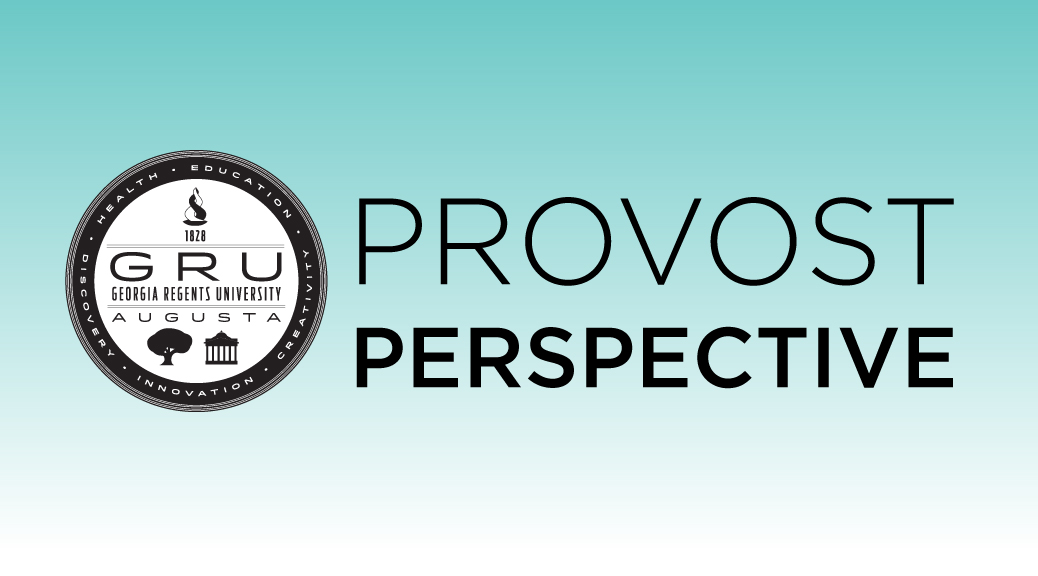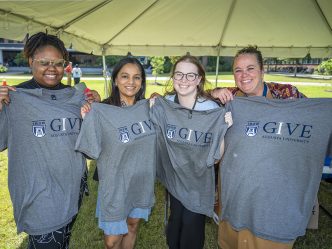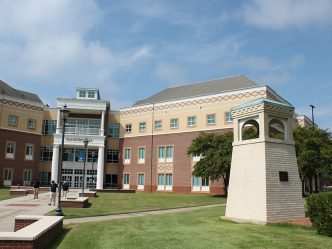As many of you know, Georgia Regents University and GRHealth have implemented an extensive Employee Engagement Survey to better understand the needs, desires, and concerns of our employees, who are the lifeblood of our institution.
The need for such feedback cannot be overstated. It’s vital as an enterprise to have an accurate understanding of how all our employees – our faculty and our staff – are feeling about their environment, about what they do, about their interaction with colleagues, and about how well they feel we are fulfilling our mission and serving the needs of our various clients and stakeholders.
Previously, we have not, as an institution, had a comprehensive program for doing this. There have been various periodic surveys of certain groups and cohorts as well as a fairly rigorous faculty survey at the former Medical College of Georgia, but nothing has ever really been done in terms of an all-employee engagement or satisfaction survey.
Therefore, given the absence of data and the fact that we’re a new institution made up of formerly autonomous parts, we felt it was important to get a reading of where we are so that we can make sure we’re moving forward as one unified organization.
We also realize that for us to accurately measure the effectiveness of this mission, we need to establish a baseline. We can’t get where we want to go without first knowing where we are.
Without question, people within our organization have experienced an enormous amount of change. Things have occurred that have impacted their lives and reorganized their worlds, so clearly the time is right to take stock. We want to know what employees think we are doing right, what they think we’re not, and where those opportunities exist for us to work together to improve our institution.
Though we engaged the services of one of the industry leaders in conducting this type of research, the size and scope of our institution necessitated two separate surveys – one for the university side and one for the health system side. Because the health system was anxious to move forward and the survey mechanics were more suited for their needs right out of the box, they went ahead and started their process in 2013. They received their results in March 2014, established and implemented action plans to address the identified concerns, and earlier this month, received very encouraging results from their second survey, which showed significant improvement across the entire health system.
At the university level, the rhythms are just different. With things running on an academic year and a semester cycle, we’re not as nimble as the health system, and in order to get meaningful information to work from, we decided to wait for some of the dust to settle after the consolidation process.
The survey was administered at the university level in April and May of last year, and a list of three organizational-level priorities were established based on the overall organizational results.
Communication, collaboration, and staffing/compensation were recognized as the priorities. A fourth area, job stress, was also identified, but it was decided that addressing the three other priorities would in all likelihood have a direct impact on job stress.
We were pleased, though not necessarily surprised, to learn that our employees value their immediate colleagues, reporting that many go above and beyond the call of duty to make the operation function smoothly. We see this dedication play out all the time, but it is still nice to hear.
Another thing that didn’t surprise us is the degree with which our employees are concerned about compensation. When we’ve been in a period of fiscal austerity like we’ve been in for the past five or six years, without any routine raises of any kind, it’s hard for that not to be a pressure point. We understand this, and Mr. Tony Wagner, Executive Vice President for Finance and Administration, is working closely with Human Resources to develop a total compensation statement to help faculty and staff understand the value of their total compensation. In addition, Mr. Wagner will work to analyze and identify underlying process issues that may reduce effectiveness and result in the perception of staff shortage.
And with as much change as the institution has experienced – and the swiftness with which it has occurred – it’s no wonder many employees also report feeling lost. They don’t know who to call anymore, and that uncertainty affects how people are able to accomplish the tasks they’ve been assigned, while perpetuating the impression that the enterprise lacks a clear direction. To address this issue, Dr. Karla Leeper, Executive Vice President for University Relations and Chief of Staff, is working with the Department of Communications and Marketing to engage employees in a conversation to more clearly define our communication issues.
Collaboration opportunities to help units and departments work well together are also an area of focused attention. Dr. Caryl Hess, Director of Leadership Development, and I are working closely, taking action to foster collaboration and leadership opportunities for representatives of the University Senate and the Employee Advisory Council.
One thing I’d like to emphasize: Everyone from senior leadership on down shares the same desire to see the results of our action planning effectively implemented. All of us want to see this survey become an instrument of positive change rather than another binder on another shelf.
The health and well-being of any organization is absolutely dependent on its employees, and it’s important to me personally that every person believes we care about their welfare and are committed to improving it, not just because I say it, but because together we’re doing specific, tangible things to make it a reality.
Please continue to look to the GReport for further details and regular updates.
 Augusta University
Augusta University




